Our Services
Pavement Preservation Treatments
Over nearly four decades, Intermountain Slurry Seal has partnered with state, federal, and local agencies to perform a variety of pavement preservation treatments. We provide solutions to maintain pavements in mixed conditions, diverse climates, and varying traffic load.
Right Treatment. Right Road. Right Time. That’s the key to a successful project. We help our customers evaluate key factors, such as budgets, life cycle costs, expectations, pavement conditions, and even public outreach, when determining which treatments to use. As a result, we naturally develop partnership and trust with our customers, creating a strong pavement preservation program, successful projects, and the best use of tax dollars.
Pavement preservation treatments preserve and improve asphalt surfaces. But one size doesn’t fit all. Climate and environmental conditions need to be analyzed and materials need to be designed around the project conditions. All treatments can be used in varying combinations to create better results that improve life cycle costs and increase pavement value.
Intermountain’s passion and expertise has grown stronger over decades of performing these treatments. Our reputation is based on recommendations, customer service and quality of work.
Let’s work together to create value.
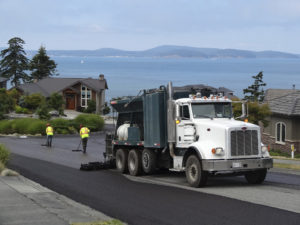 Slurry Seal is a mixture of an approved emulsified asphalt, mineral aggregate, water, and additives. It’s proportioned, mixed, and uniformly spread over a prepared surface.
Slurry Seal is a mixture of an approved emulsified asphalt, mineral aggregate, water, and additives. It’s proportioned, mixed, and uniformly spread over a prepared surface.
Slurry Seal is designed to extend the life of asphalt pavements in good condition by providing skid resistance, restricting moisture intrusion, protecting against further oxidation, and restoring a uniform black appearance.
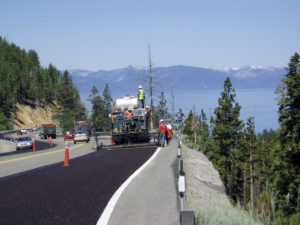 Micro Surfacing is often used as a leveling treatment to fill ruts or extend the life of existing pavement surfaces while providing a premium wearing surface. A mixture of polymer modified asphalt emulsion, mineral aggregate, mineral filler, water, and additives are spread on a paved surface in variable thick cross-sections, which resists compaction.
Micro Surfacing is often used as a leveling treatment to fill ruts or extend the life of existing pavement surfaces while providing a premium wearing surface. A mixture of polymer modified asphalt emulsion, mineral aggregate, mineral filler, water, and additives are spread on a paved surface in variable thick cross-sections, which resists compaction.
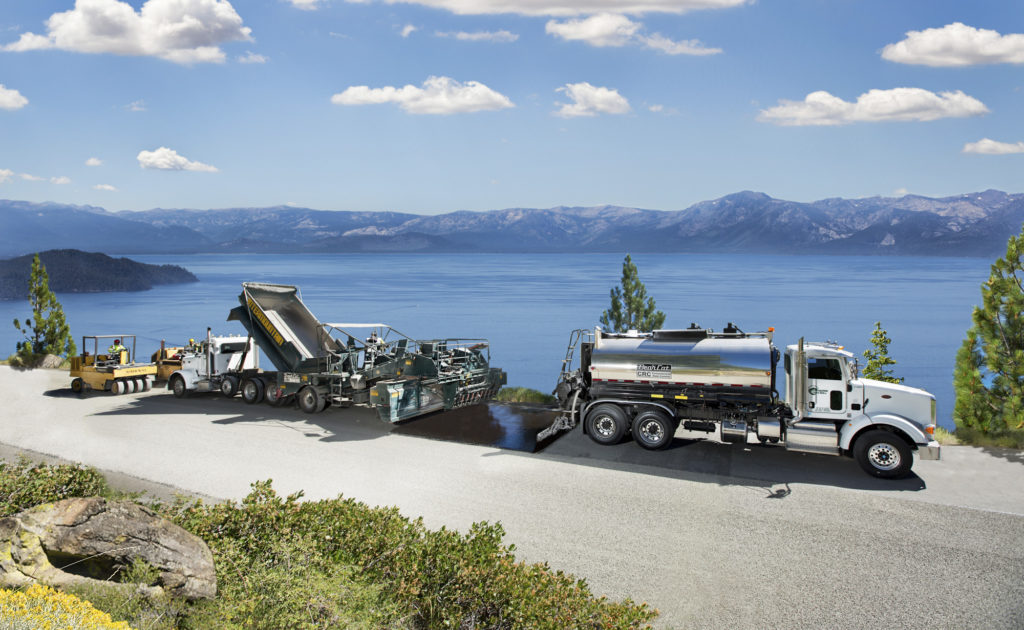 A chip seal is a roadway surface treatment that consists of a layer of asphalt binder with layers of embedded aggregate. Excess cover aggregate is normally removed upon completion.
A chip seal is a roadway surface treatment that consists of a layer of asphalt binder with layers of embedded aggregate. Excess cover aggregate is normally removed upon completion.
This treatment weather-proofs surfaces and adds skid resistance, stops raveling, seals minor cracks, and slows further deterioration of pavement. It can be performed over base rock or asphalt pavement.
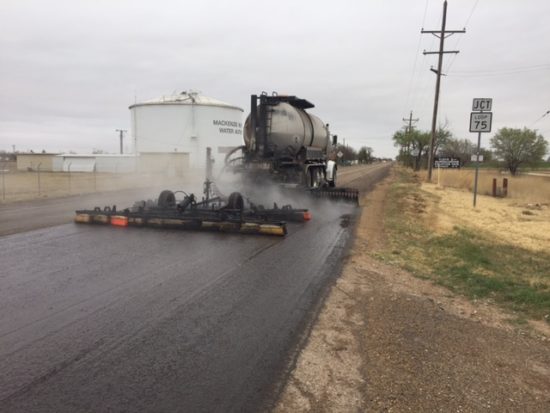
A scrub seal is a roadway surface treatment that involves applying a spray-on emulsion with a higher viscosity followed by a broom trailer that forces the emulsion into the cracks. A light coverage of fine aggregate is applied to the emulsion to provide some surface skid resistance.
This treatment weather-proofs surfaces and adds a temporary skid resistance. It’s primarily used as the first step in a cape seal treatment but can also be left as a final surface for low volume traffic conditions. If a scrub seal is used as a final surface treatment and aggregate larger than one-quarter inch is used, a fog seal is recommended to help lock down the aggregate.
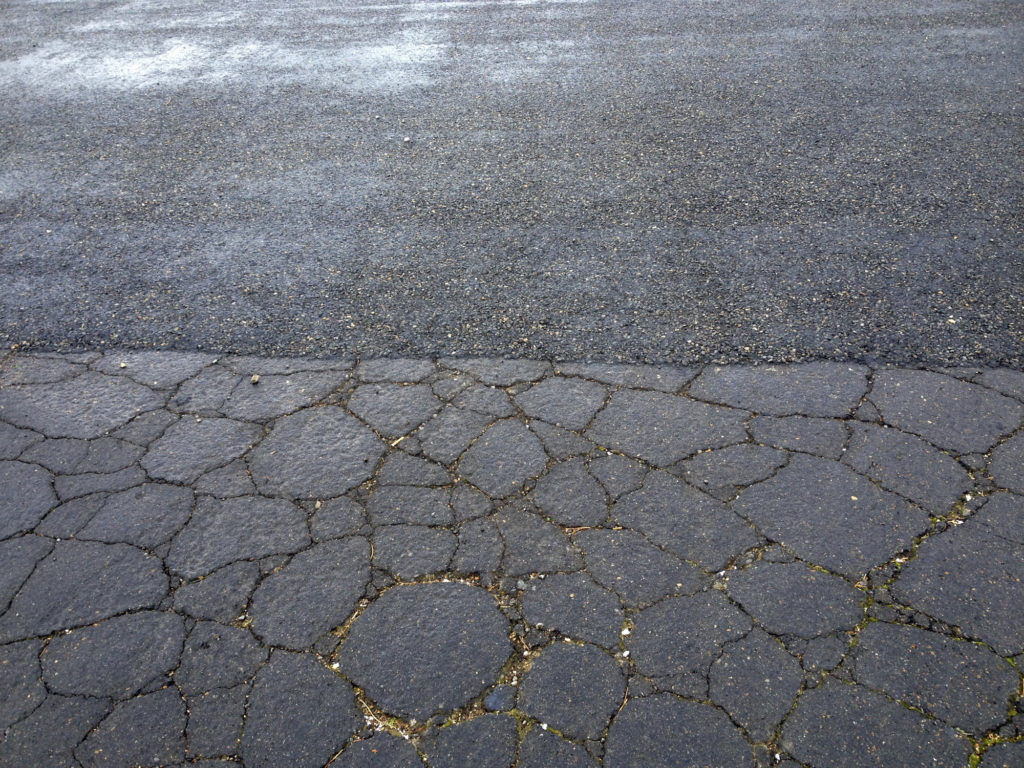
Asphalt Rubber (AR) is a field-blended material that can be spray applied or used in hot mix paving, using the engineering properties found in recycled tires. The field-blended aspect of AR binders allows it to be custom designed to fit a variety of climates and traffic locals.

Safe and efficient roadways incorporate uniform pavement markings to delineate the roadway path and specific traffic lanes. As the name implies, Highway Striping involves applying water based paint and preformed Thermoplastic to pavement to create these traffic lanes and boundaries. Striping can be applied to existing configurations or used to design new striping configurations.
Pavement markings communicate information to road users like no other traffic control device. They provide continuous information to road users related to the roadway alignment, vehicle positioning, and other important driving-related tasks.
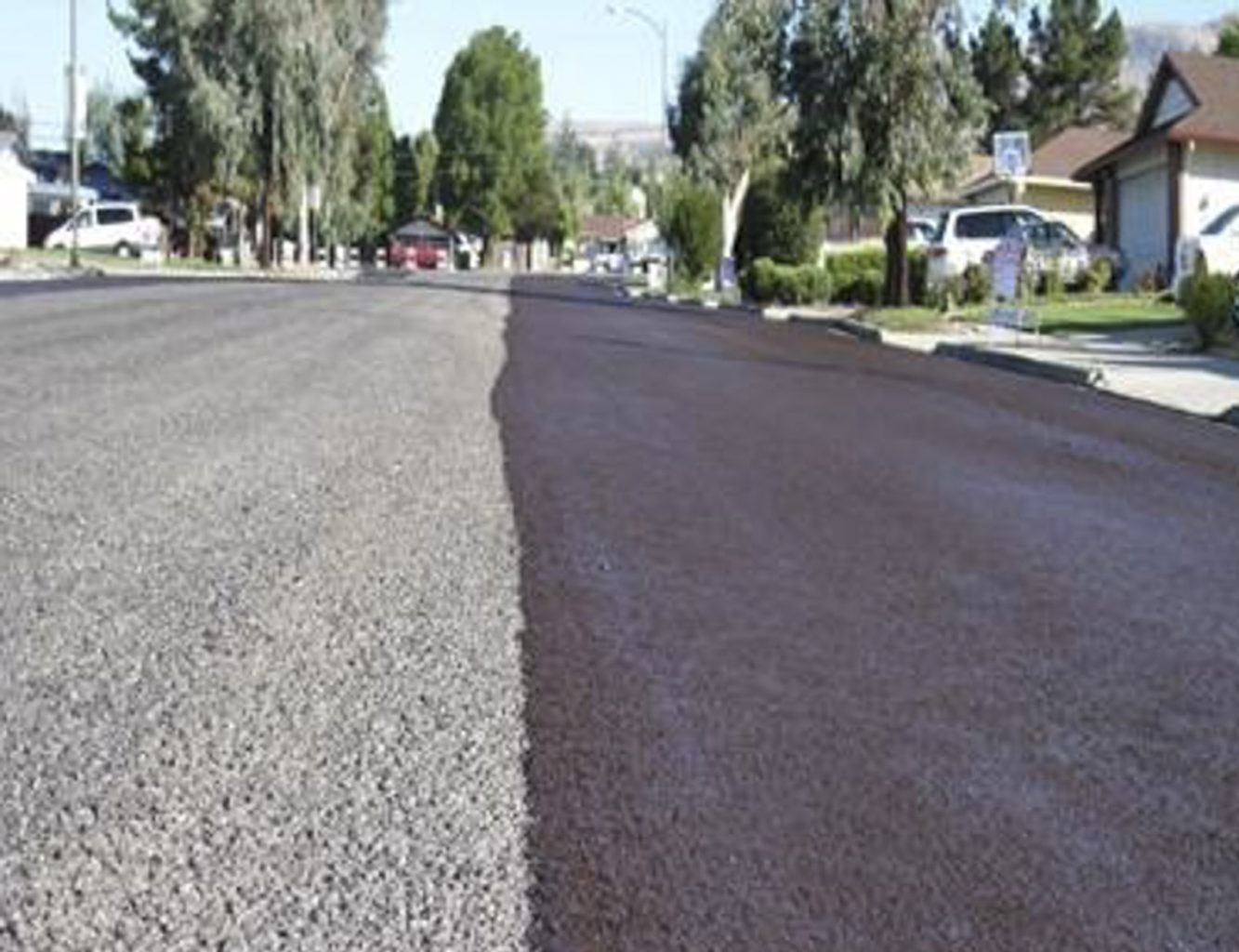
A Cape Seal involves a single application of chip seal or scrub seal followed by a single application of slurry seal or micro surfacing treatment.
It’s extremely cost effective and provides the benefits of both treatments – sealing moderate cracks, providing skid resistance, sealing pavement against moisture, protecting against oxidation and raveling, and restoring a uniform appearance.
Cape Seal treatments have been used for many years on projects with long life cycles.
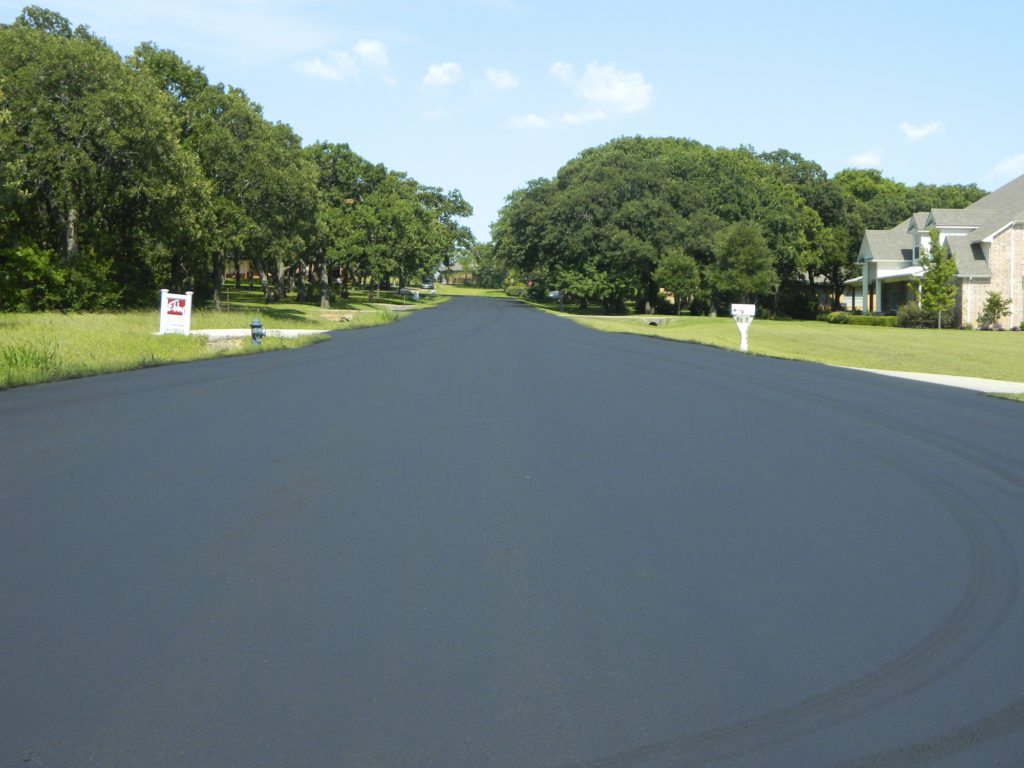
A Fog Seal is a useful, inexpensive maintenance procedure. It involves a light treatment of diluted fast-setting emulsified asphalt that is used to seal and rejuvenate the existing asphalt surface.
This treatment is best performed to newer asphalt pavements to renew weathered asphalt surfaces and improve appearance, seal minor cracks and surface voids, and inhibit raveling. Fog Seals are also used to seal and prevent loose aggregate issues in chip seals.
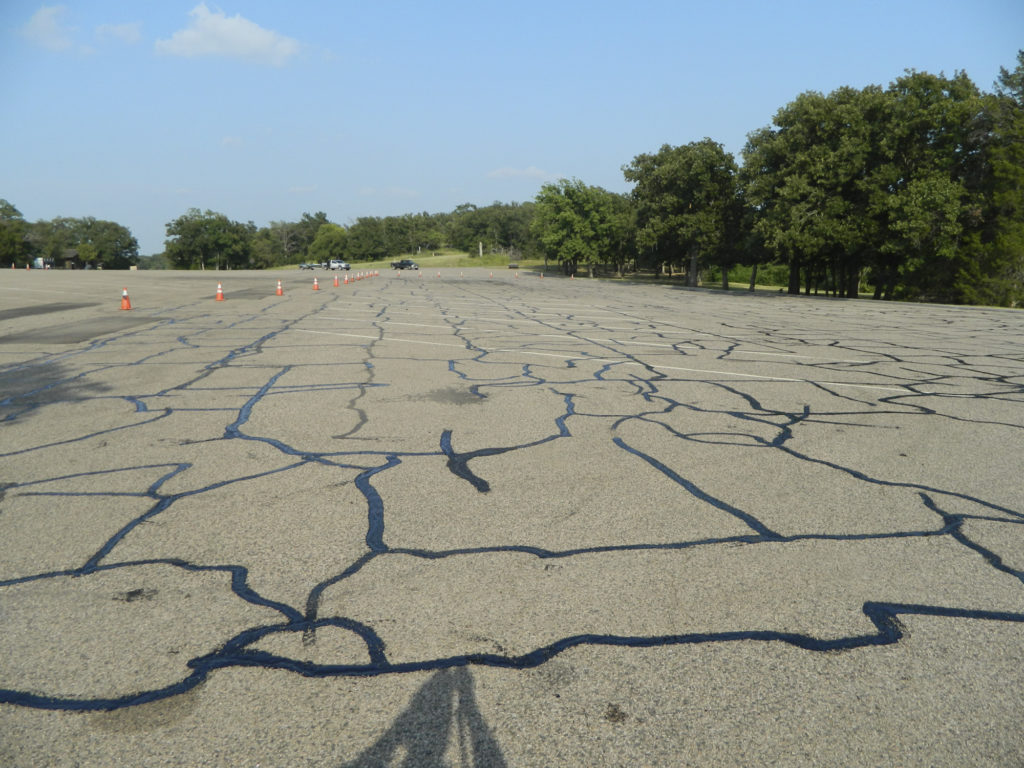
If new pavement is left unsealed, ultra-violet rays, moisture, freeze-thaw and inclement weather conditions can cause cracks. The cracks need to be cleaned out with compressed air and then filled with a hot rubberized asphalt. Crack Sealing is a cost-effective method to treat all types of cracks greater than one-eighth inch.
Interested in Working with Intermountain?

